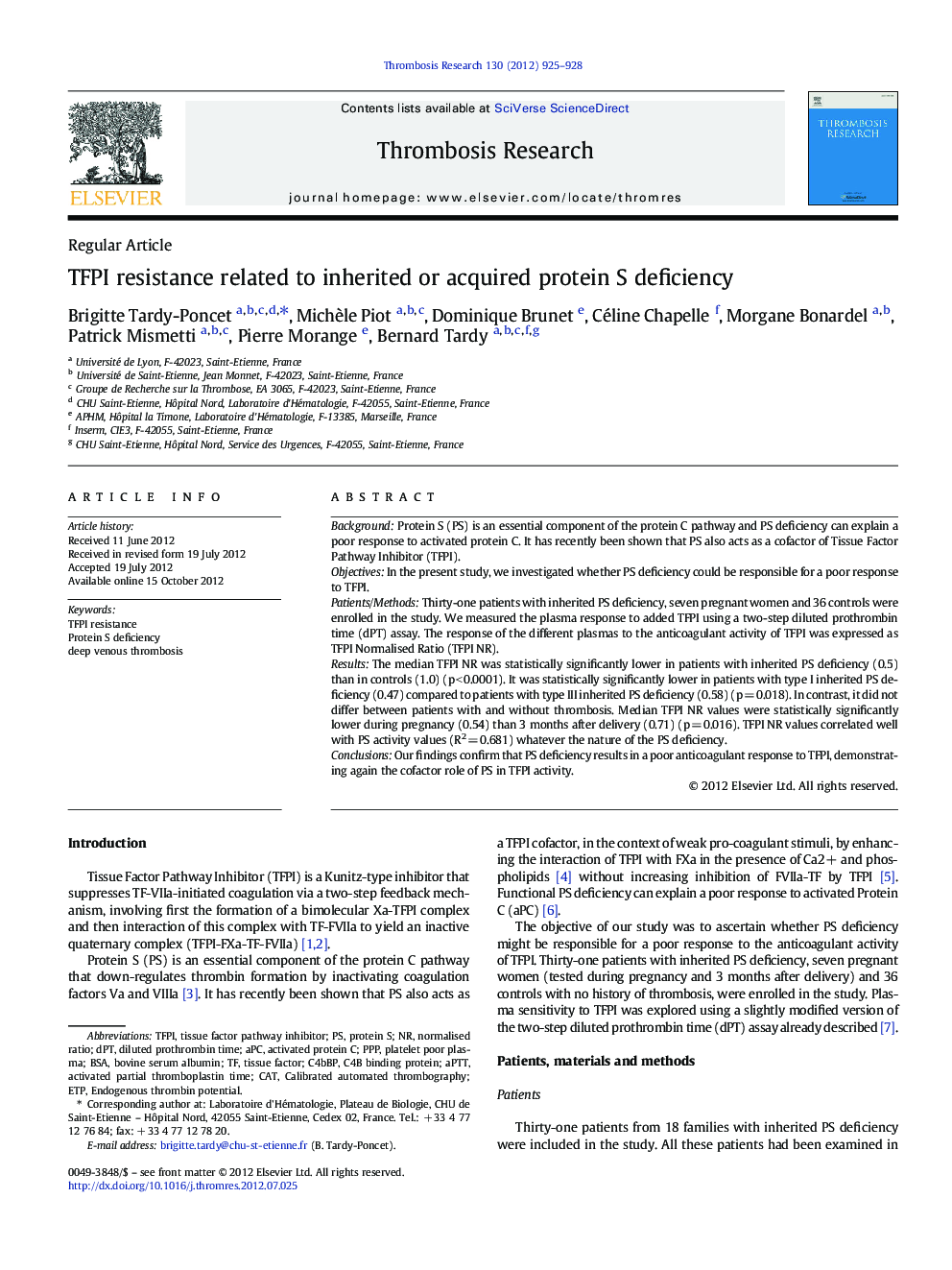| Article ID | Journal | Published Year | Pages | File Type |
|---|---|---|---|---|
| 3028072 | Thrombosis Research | 2012 | 4 Pages |
BackgroundProtein S (PS) is an essential component of the protein C pathway and PS deficiency can explain a poor response to activated protein C. It has recently been shown that PS also acts as a cofactor of Tissue Factor Pathway Inhibitor (TFPI).ObjectivesIn the present study, we investigated whether PS deficiency could be responsible for a poor response to TFPI.Patients/MethodsThirty-one patients with inherited PS deficiency, seven pregnant women and 36 controls were enrolled in the study. We measured the plasma response to added TFPI using a two-step diluted prothrombin time (dPT) assay. The response of the different plasmas to the anticoagulant activity of TFPI was expressed as TFPI Normalised Ratio (TFPI NR).ResultsThe median TFPI NR was statistically significantly lower in patients with inherited PS deficiency (0.5) than in controls (1.0) (p < 0.0001). It was statistically significantly lower in patients with type I inherited PS deficiency (0.47) compared to patients with type III inherited PS deficiency (0.58) (p = 0.018). In contrast, it did not differ between patients with and without thrombosis. Median TFPI NR values were statistically significantly lower during pregnancy (0.54) than 3 months after delivery (0.71) (p = 0.016). TFPI NR values correlated well with PS activity values (R2 = 0.681) whatever the nature of the PS deficiency.ConclusionsOur findings confirm that PS deficiency results in a poor anticoagulant response to TFPI, demonstrating again the cofactor role of PS in TFPI activity.
